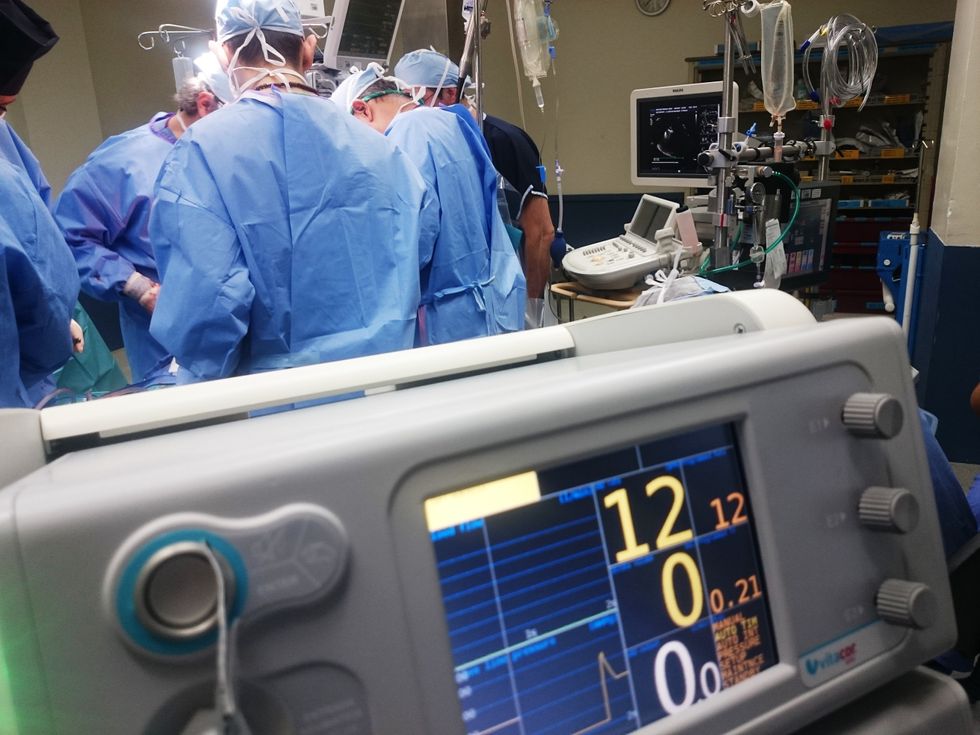An MRI should be the first line of diagnosis for someone over 50 who is complaining from back pain. My family has learned the hard way that X-rays do not detect compression type fractures, specifically in the spine.
Everyone has a friend or relative: parent, grandparent, aunt or uncle, who may suffer from an accident or fall and need medical attention. Before going to the hospital or doctor, it's important to know the tools that are available and how best to care for your loved one. After all, you're the only one who can advocate for them, so it pays to know and not be led by other's opinions.
Anyone who goes to the emergency room and complains of back pain will most likely be given an X-ray, or CAT scan if they're being thorough. However, neither of these methods were able to detect a major fracture that my father had. This led to the injury getting much worse and caused my dad to suffer from partial paralysis and required emergency surgery. This could have been avoidable if the right diagnostic tools were used to detect the problem from the start.
At the time, I did not know much about X-rays and MRI's or the difference between them. I now know that there's a big difference between them. An MRI can provide a very detailed image not only of the bone but of tissue as well. This is particularly useful to detect spinal cord injuries. X-rays are designed to look at bones. MRI's are also more expensive than X-rays, which is probably why they are not the first line diagnostic tool, but I think that should change.
Why would we continue to use a tool that doesn't do the job right?
When my dad fell and broke his back we went to the emergency room, they did an X-ray and found nothing. How can someone who had no pain then fall and start having excruciating pain and there's nothing to show for it? They gave us some possible causes, such as a pinched nerve or muscle spasms, but the symptoms didn't fit. So we went home hoping things would get better, but they didn't.
When new symptoms started appearing and the pain got worse, we had to go to the ER again. This time they did a CT scan, but still found nothing. When they finally decided to do an MRI, a monkey wrench came up in that too.
When they did the MRI they only checked the lower back, where he felt pain, which made sense to us but we didn't know that the pain can radiate and isn't necessarily felt in the same place where it is. In other words, the injury could be in the upper part of the back but it's felt in the lower back. That's another thing to be aware of when dealing with back injuries. Finally, a specialist decided to do an MRI for the upper back, after they were about to declare that this pain was caused by some neurological issue - it was all in his head.
After going through this I realized the importance of researching things on my own and not relying on others to give you the right advice and guidance. Not everyone has the proper understanding or experience to be able to inform you. People forget things and some don't care. Even the ones who do will almost never care as much as you would for yourself or your loved one.
I'm not going to blame the hospital or doctors because we went to two different hospitals and they did the same thing. But I believe it's something that needs to be changed for the whole system. The very least we can do is pass this information on to others, so anyone facing a similar situation knows what to do and what questions to ask.
The moral of the story is that you should always ask questions, research and take a second opinion. If you have a gut feeling about something, don't ignore it. And most importantly, if you run into the same situation, insist that you get an MRI of the entire spine. It's your right to have a proper diagnosis.

















